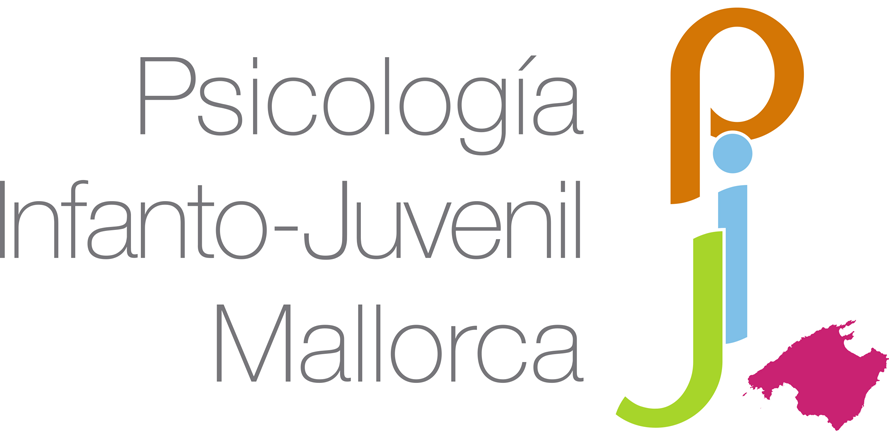Divorce is a pervasive reality in society today, affecting many families around the world. As social, economic, and cultural dynamics evolve, so do perceptions and experiences around divorce. Today, we face a landscape where divorce has become a more common and accepted phenomenon, but no less challenging for those involved.
Divorce is an event that can profoundly shake the emotional world of children, leaving a significant impact on their development and psychological well-being. The psychological consequences of divorce on children can vary depending on several factors, including the age of the children, the nature of the divorce, and the level of emotional support they receive from parents and other significant adults in their lives.
Although it is a challenging process, it can be a positive change for children, especially when handled constructively. Experts agree that a well-managed divorce is preferable to a troubled marriage. Children who grow up in an environment of constant fighting, resentment, and lack of love may suffer more than those who experience separation from their parents in an environment of respect and cooperation.
Risk Factors for Children in Divorce
When studying the effects of divorce on children, it is difficult to determine whether it is the divorce itself that affects them or a series of social factors that very often accompany the separation of couples. Social factors include:
- Loss of purchasing power: living together means saving on a series of shared expenses. Separation in some cases leads to a significant loss of purchasing power.
- Change of residence, school and friends: the divorce of the parents entails important changes in the child’s environment. You may have to change your school, or your residence. The impact this factor has on a child’s development and social adjustment is significant.
- Forced cohabitation with a parent or with members of the family of one of them: the choice of the parent with whom the child lives is not always the one he or she wants. The family of separated children supports the additional work and often provides the necessary assistance to enable the parent who takes care of the child to carry out his or her work or leisure activities. This factor leads to living with adults, often very enriching and other times not so much.
- Reduction of the action of the parent with whom they do not live: the parent who is not permanently with their child ceases to exert a constant influence on the child and cannot consider modifying behaviors that they do not like on the weekends that they have to visit. On the other hand, the child loses access to the skills of the mother or father who does not live with him, with the consequent reduction of his or her training possibilities.
- Introduction of new partners of the parents: it is a tremendously important factor in the adaptation of the children and has a very important effect on the relationship between parent and child.
If there are also emotional factors in the parents, the negative effects on the children can be multiplied. For example:
- A poor acceptance of divorce by one of the parents can lead them to live with a depressed or hostile person.
- A divorce entails by its very nature a certain hostility between the parents. When this hostility is transferred to the children, it can lead to parental alienation. It is a complex phenomenon characterized by a set of behaviors and attitudes on the part of one parent that seeks to alienate or emotionally distance the child from the other parent. In other words, it involves negatively influencing the child’s perception of the other parent, fostering feelings of rejection, hostility or detachment. Typical behaviors include denigrating the other parent in front of the child, making the other parent believe that the other parent does not love or care about him/her, or even interfering with visitation time or communications between the child and the other parent. Parental alignment can be subtle or obvious, and it can vary in its severity and the impact it has on the child.
Psychological Consequences of Divorce on children
Divorce can have negative consequences, but there are also positive consequences that can be drawn from such a situation.
Negative Consequences:
- Emotional distress: divorce can trigger a wide range of emotions in children, ranging from sadness and anxiety to anger and fear. Feelings of loss, the breakdown of family security, and uncertainty about the future can all contribute to this emotional distress.
- Feelings of guilt: children often internalize divorce and may come to blame themselves for their parents’ separation. They may mistakenly believe that their behavior or actions contributed to the divorce, which can negatively affect their self-esteem and sense of self-worth.
- Internal conflicts: children may experience internal conflicts related to loyalty to both parents. They may feel caught in the middle of parental disputes or pressured to take sides, which can lead to additional emotional stress.
- Behavior problems: some children may develop behavioral problems as a result of divorce, such as aggression, rebelliousness, developmental regression, or academic difficulties. These behaviors can be a way to express your emotional discomfort and seek attention or comfort.
Positive consequences:
- Healthier environment: it can put an end to an environment full of conflict. By eliminating fights and resentment, children can live in a calmer and safer environment, which is critical to their emotional well-being.
- Healthy Relationship Models: by watching their parents make difficult but necessary decisions, children learn about the importance of pursuing healthy and respectful relationships. A good divorce can teach them that it’s better to separate amicably than to stay in an unfulfilling relationship.
- Building resilience: the process of adjusting to divorce can strengthen children’s resilience. Learning to handle significant change and adapt to new situations is a valuable skill that will benefit them in many aspects of their lives.
- Improved family communication: divorce often requires families to work on their communication. This can lead to better expression of feelings and needs, and strengthen family relationships by encouraging open and honest communication.
- New opportunities for positive relationships: it can open the door to new positive relationships, for both parents and children. Introducing new family members, such as stepparents and stepsiblings, can expand the support network and provide new opportunities for love and friendship.
How does it affect them depending on their age?
- Young children (0-5 years): at this stage they may have difficulty understanding the divorce situation, but they may still experience a number of emotional and behavioral changes. They may manifest separation anxiety, sleep problems, changes in eating habits, and regression in potty training. However, they can adapt quickly to changes if they are provided with a stable and safe environment.
- School-age children (6-12 years old): they may have a clearer understanding of divorce, but may still face significant emotional challenges. They may experience feelings of abandonment, guilt, or responsibility for fixing the situation. They may also show behavior problems at school or with friends. However, by understanding that both parents love them and will continue to care for them, they can adapt better.
- Adolescents (13 years and older): may react differently to divorce, from rebellion to sadness. They may feel embarrassed or resentful and may seek independence from their parents. Divorce can also affect your academic performance, self-esteem, and social relationships. However, if they are allowed to express their feelings and opinions, they can develop greater problem-solving skills as they cope with and adapt to the new family dynamic.
How can we help children in a divorce?
- Open communication and honesty: it is critical to talk to children about divorce clearly and honestly, providing information tailored to their age and level of understanding. It is important to convey to them that the divorce has nothing to do with them in order to avoid possible feelings of guilt. Parents should foster an environment where children feel safe to express their emotions and ask questions without fear of judgment.
- Maintain routine and stability: despite changes in family structure, it is important to maintain stability and consistency in children’s lives. Consistent routines at school, extracurricular activities, and regular visits with both parents are essential.
- Do not force the introduction of new partners into the family dynamics: if there are new couples, it is advisable not to force the relationship with the children and continue to preserve a space to share between parents and children.
- Emotional support: children need to feel loved and supported during this difficult period. Parents need to make sure they spend quality time with their children, respect their pace, and provide comfort and show them that divorce doesn’t change the love they have for them.
- Seek professional help if needed: in cases where children are struggling with intense emotions or behavioral issues, it may be helpful to seek help from a child psychologist or family therapist. These professionals can provide coping strategies and additional support to help children cope with divorce.
In conclusion, divorce does not have to be a negative experience for children. With a positive and constructive approach, parents can transform this challenge into an opportunity for their child’s growth and emotional development. By maintaining open communication, providing stability and emotional support, and seeking professional help when needed, children can adapt healthily and resiliently to their new family reality. However, many couples do not decide to take the step and prolong the divorce or decide to continue in the relationship for fear of the impact on their children. However, as we have mentioned before, experts say that a well-managed divorce is always better for children than a bad marriage since witnessing fights, bad faces, resentment, and tensions generates a negative emotional impact on them.
If you are going through a separation process and want us to help you detect and reduce those factors that may be making it difficult to adapt to the new family dynamics and how to manage the psychological repercussions, do not hesitate to contact us.
Laura Maymó Gallurt
Psychologist Col. Nº B-03427






